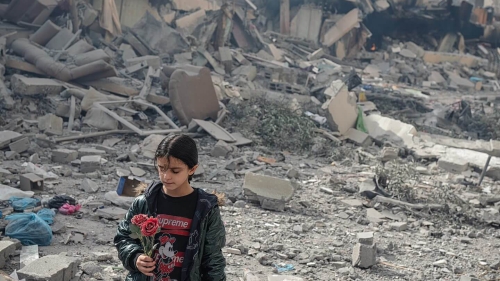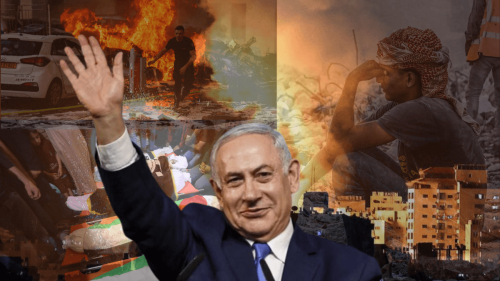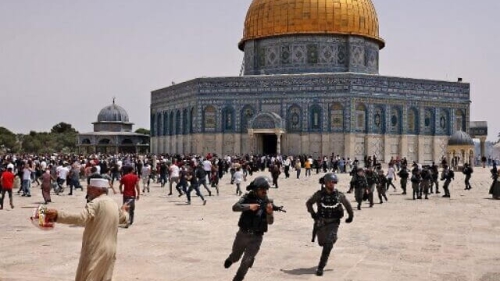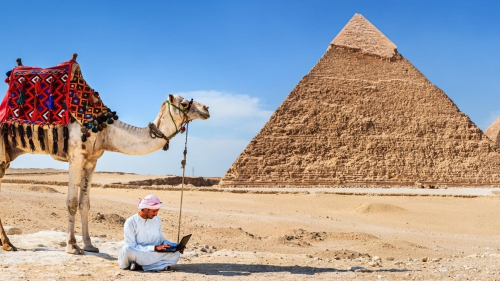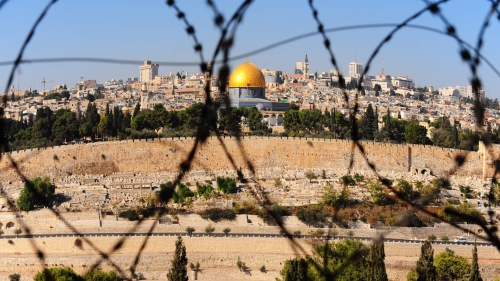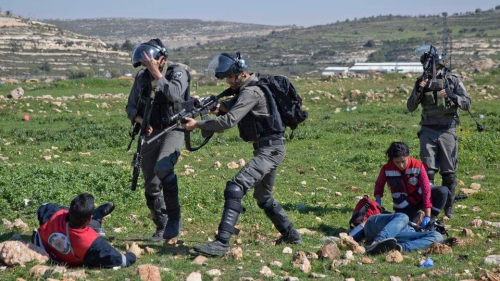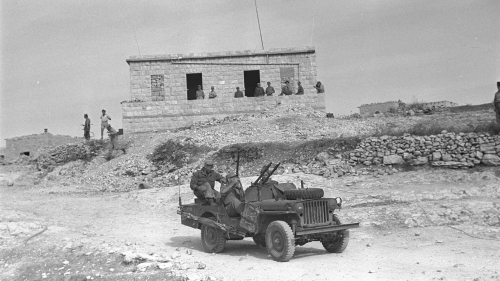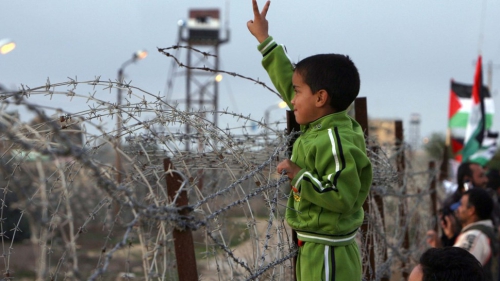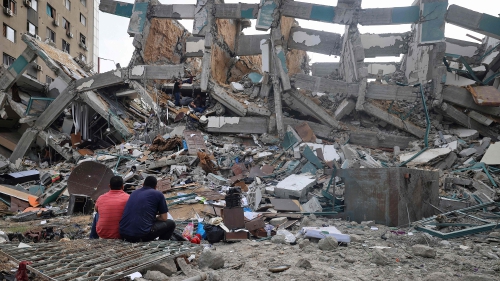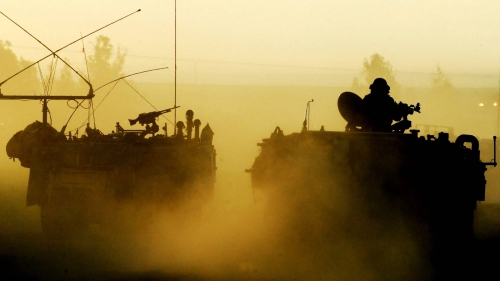Intifada Feeds Israeli Druze Disillusionment
BEIT JANN, Israel, Feb 16 (AFP) - Israeli war veteran Salman Yosef trembled as he spoke about his son, a Druze soldier killed fighting Palestinians he considers part of the same Arab family.
"This is not our war," Salman said at his home in Beit Jann, one of several Druze villages dotted across the lush green hills of the Upper Galilee region of northern Israel.
Salman's son Madhat, 19, was shot by Palestinians in the West Bank in early October, one of two Druze soldiers killed since the start of the almost five-month-old Palestinian uprising, or intifada, which has left more than 410 dead.
The Druze -- a tiny branch of Islam founded in the 11th century -- are the only Arab community in Israel required to serve in the Israeli Defence Forces, except for those in the occupied Golan Heights who have refused Israeli citizenship.
"This is an obligatory service, and we are not comfortable serving in the territories because we feel inside that the Palestinians are our brothers, but it is an order and we have no choice," Salman said.
The Israeli-Palestinian conflict has stirred resentment in the 100,000 strong Druze community, with many asking what they get in return for risking their lives.
"We are so frustrated, and the new generation cannot accept even what I accept today. We pay our blood for the country. And we are not equal citizens, " said Saleh Tarif, one of two Druze members of the Israeli parliament.
Relations have not always been so troubled between Israel and the Druze, who fought alongside Israelis and against Arabs in the 1948 war to establish a Jewish state.
Nine years later, Druze community elders agreed to mandatory conscription, although the Israeli army today will not disclose the number of Druze soldiers.
"The Druze elders thought if they did these (military) services, they would have special status here, for their lives and interests," said Tarif, "but it was not like this."
Instead, Tarif said, the Druze are being discriminated against.
In December he protested in parliament to Israel army chief Shaul Mofaz about an extended 11-month tour in the Gaza Strip for the military's one exclusively Druze unit.
"They are putting the Druze unit for months and months on the front," he said.
"We hate it, and we don't want to be part of it. We don't want to be a part of the occupation. It is not defending Israel."
Today, Druze towns and villages receive 15 to 30 percent less funding than their Jewish counterparts, according to Tarif. Grouped among Israel's one million Arabs, their monthly gross income ranks 25 to 30 percent less than Israeli Jews.
Gabriel Ben-Dor, who has headed two government commissions on the treatment of Israel's Druze, said he believed the army has offered the community greater opportunities.
"The military gives them security for life," he said. "It gives them a chance to see the world."
But the Druze have begun to feel alienated, and in the February 6 election for prime minister, a majority joined the Arab boycott staged in protest at the killing of 13 Arab citizens by the Israeli police during October demonstrations in support of the intifada.
Kais Firro, professor of Middle Eastern history at Haifa university, said some Druze are choosing jail-time rather than serving in the Palestinian territories.
"Many have begun to feel they are the same as Arabs, and there is no difference between them," he said.
The steep hillsides of Beit Jann give ample evidence of the Druze's tangled relationship with Israel. Rutted dirt roads lead to dilapidated and unfinished homes, though dusty Israeli flags fly from the occasional rooftop.
The town of 8,000 has lost 59 men in the army since Israel's creation.
Photos of Madhat and other young Druze dressed in olive-coloured military garb hang throughout the Yosef home.
Madhat was shot in the neck during fighting near Joseph's Tomb, a Jewish holy shrine in the northern West Bank town of Nablus during the first week of the intifada. He bled to death over five hours while the Palestinians blocked the area and the army debated whether a rescue mission would result in more casualties.
When Mofaz visited the family, two of Madhat's cousins returned their army reserve identity cards, telling him they had sworn their allegiance to Israel but the country had forgotten to make a similar pledge.
Last month, the family filed a suit with Israel's Supreme Court to force the army to admit guilt in Madhat's death.
"If he was the son of a top officer, or the son of Mofaz, maybe they would have done the impossible to save his life, but he was a normal soldier," said Madhat's sister Siham, 25.
An Israeli army spokesman denied any strife within the army ranks.
"Druze are serving the needs of the IDF (army) and they do an excellent job, " he said. "They fully and truly belong to the Israeli army and the state of Israel."






